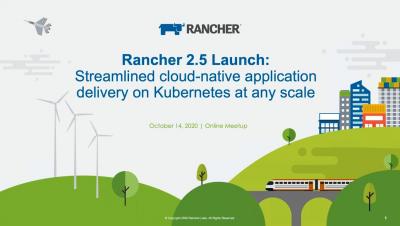Three Reasons Why Hosted Rancher Makes Your Life Easier
Today’s generation of makers, artists and creatives have reinforced the idea that great things can happen when you roll up your sleeves and try to learn something new and exciting. Kubernetes was like this only a couple of years ago: the mere act of installing the thing was a rewarding challenge. Kelsey Hightower’s Kubernetes the Hard Way became the Maker’s handbook for this artisan craft.











